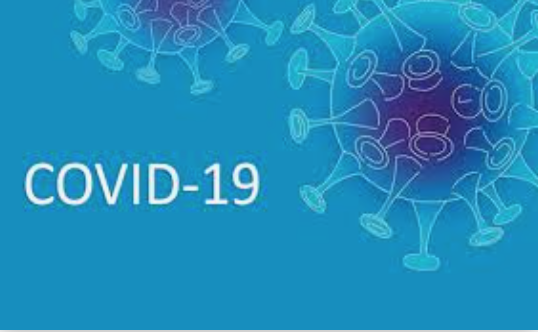EMDR
Eye Movement Desensitization and Reprocessing
EMDR is a highly specialized therapy that should be conducted by a licensed mental health professional who has undergone specific training in this complex approach. EMDR involves recalling a stressful past event and "reprogramming" the memory in the light of a positive, self-chosen belief, while using rapid eye movement to facilitate the process.
How does EMDR therapy work? At the time of a traumatic event, strong emotions interfere with our ability to completely process the experience and one moment becomes " frozen in time ". Recalling the traumatic event may feel as though the person is reliving the event all over again because the images, smells, sounds, and feelings remain unprocessed and can be triggered in the present. When activated, these negative memories impact our daily functioning and interfere with how we view ourselves and our world , and how we relate to others. EMDR appears to directly affect the brain , "unfreezing" the traumatic memories, allowing us to resolve them. Over time, the disturbing memory and associated beliefs, feelings, sensations become "digested" or processed until the client is able to think about the event without reliving it. The memory is still there, but is less upsetting and intrusive. While the exact mechanism for the effectiveness of EMDR is yet unknown, it appears rapid eye movement relieves the anxiety associated with the trauma so the original event can be examined from a more detached perspective. This enables the client to access positive ways of reframing the original trauma ( reprocessing ), and to release the body's stored negative emotional responses around it ( desensitization ).
EMDR does not require the client to go into detail about the distressing event. Unlike traditional therapy modalities, the trauma is not analyzed for long periods of time, and the trauma that must be re-experienced during treatment is relatively short lived. Cognitive reprocessing occurs simultaneously with memory recall.
In addition to treating trauma, EMDR has been applied to treating Addictions. Using the effective combination of Motivational Interviewing and protocols such as Cravex, and Detur, a trained EMDR therapist guides the client to a lasting sobriety. EMDR is compatible with other treatment modalities including 12 step, Methadone, and Vivitrol.
EMDR has shown to be effective treating tobacco dependence, and can be applied to treat other addiction processes such as gambling and sexual obsessive/compulsive behaviors.
The use of EMDR therapy has also been found effective in treating certain Anxiety Disorders such as testing anxiety ( has not yet been shown effective in treating panic disorders or phobias )
**** EMDR was created for use as a trauma therapy and as such focuses on intensely stressful subjects. Pregnant women, or those with heart conditions, eye problems, or other health issues should consult with their physician before beginning EMDR therapy.
How does EMDR therapy work? At the time of a traumatic event, strong emotions interfere with our ability to completely process the experience and one moment becomes " frozen in time ". Recalling the traumatic event may feel as though the person is reliving the event all over again because the images, smells, sounds, and feelings remain unprocessed and can be triggered in the present. When activated, these negative memories impact our daily functioning and interfere with how we view ourselves and our world , and how we relate to others. EMDR appears to directly affect the brain , "unfreezing" the traumatic memories, allowing us to resolve them. Over time, the disturbing memory and associated beliefs, feelings, sensations become "digested" or processed until the client is able to think about the event without reliving it. The memory is still there, but is less upsetting and intrusive. While the exact mechanism for the effectiveness of EMDR is yet unknown, it appears rapid eye movement relieves the anxiety associated with the trauma so the original event can be examined from a more detached perspective. This enables the client to access positive ways of reframing the original trauma ( reprocessing ), and to release the body's stored negative emotional responses around it ( desensitization ).
EMDR does not require the client to go into detail about the distressing event. Unlike traditional therapy modalities, the trauma is not analyzed for long periods of time, and the trauma that must be re-experienced during treatment is relatively short lived. Cognitive reprocessing occurs simultaneously with memory recall.
In addition to treating trauma, EMDR has been applied to treating Addictions. Using the effective combination of Motivational Interviewing and protocols such as Cravex, and Detur, a trained EMDR therapist guides the client to a lasting sobriety. EMDR is compatible with other treatment modalities including 12 step, Methadone, and Vivitrol.
EMDR has shown to be effective treating tobacco dependence, and can be applied to treat other addiction processes such as gambling and sexual obsessive/compulsive behaviors.
The use of EMDR therapy has also been found effective in treating certain Anxiety Disorders such as testing anxiety ( has not yet been shown effective in treating panic disorders or phobias )
**** EMDR was created for use as a trauma therapy and as such focuses on intensely stressful subjects. Pregnant women, or those with heart conditions, eye problems, or other health issues should consult with their physician before beginning EMDR therapy.
FeesCounseling Fees are set at $110 per clinical hour or as contracted between provider and insurance company.
You should be aware that treatments such as EMDR are customarily provided in 90 minute sessions and that insurance may not provide for more than a 45 minute session. You will be responsible for the portion of the session not covered by your insurance. |
Contact us to discuss if EMDR would be a beneficial treatment option for you. Dignified Healing LLC (978) 790- 8236 |



